Super-typhoons and cities threatened with rising seas… Ocean acidification and dying coral reefs… Melting polar ice and species extinction on a global scale… It’s time for us all to realize that climate change isn’t an abstract threat in some distant future. Rather, climate change has happened, is happening now and will continue to happen — in your future. The window for focusing solely on mitigation has unfortunately past; we now must also direct research, planning, and resources to prepare for living on an inevitably changed planet.
In order to tackle this complex global subject, we’ll be focusing on three critical subtopics that will broadly shape your future: water, energy, and infrastructure. The mornings will be spent in general topic lectures; after lunch the group will split into three small seminars to participate in real-world problem-solving exercises organized around the principles of the conference. The final day, Saturday the 24th, will be dedicated to single topic: The Myth of Sustainability.
Schedule
WEDNESDAY, January 21
Hors-d’oeuvres Reception and Opening Address(4:30-6:00)
NPR Host of Living on Earth Steve Curwood ’69: Disbelievers: The Crisis of Faith on Climate Change
Thursday, January 22
Water
Morning General Session
Professor Elsie Sunderland (10:15-10:45) Muddying the Waters
Professor Jim McCarthy (11:00-12:00) This is What Climate Change Looks Like
Group Lunch
Breakout workshops (choose one) (1:15-2:30):
Julie Wormser Preparing Cities for Rising Tides
Heather Henriksen Doing More With Less (Energy).
Dave Favazza and Travis Watters Designing Solutions in an Imperfect World: Drinking Water in Liberia
Afternoon Address: Rear Admiral Linda Fagan 2:45-3:30 Defending Against the Storm: Response and Resilience
3:45- 5:30 Design Thinking Workshop – Design the World in 2035, Part 1
Design Thinking is a structured process for innovation that was pioneered by IDEO, Stanford Design School and is currently employed by the Harvard Business School. Design Thinking allows the development of basic skills in creative problem solving, innovation, and "human-centered design thinking (HCD)." In this workshop, you will learn the basics of HCD, and develop ideas for clean water, air filter, natural energy and infrastructure. Lead by Maryam Eskandari, Founder of MIIM Designs and Adviser at Harvard Innovation Lab.
Friday, January 23
Infrastructure & Energy
Morning General Session
Maggie Koerth-Baker & Jed Willard (10:15-10:45) Why the Pushback on Climate Change?
Michael Weishan, 86 (11:00-12:00) How Corn May Come to Kill You: The American Addiction to Industrialized Farming
Group Lunch
Breakout workshops (choose one) (1:15-2:30):
Albert Cho Let’s Solve Water: Debating alternative approaches to addressing the world’s water challenges Marianne Bonnard and Philip Duguay The Day After Tomorrow: New England’s Water Crisis
Nancy Israel If it’s Melted It’s Ruined: Financing Green Infrastructure
Saturday, January 24
The Sustainability Myth
10:00-11:30 Design Thinking Workshop – Design the World in 2035, Part 2
Design Thinking is a structured process for innovation that was pioneered by IDEO, Stanford Design School and is currently emplyed by the Harvard Business School. Design Thinking allows the development of basic skills in creative problem solving, innovation, and "human-centered design thinking (HCD)." In the conclusion to this workshop you’ll discover how to make sure that these ideas, products and services you envisioned in the first seminar engage real world problems. Lead by Maryam Eskandari, Founder of MIIM Designs and Adviser at Harvard Innovation Lab.
Morning General Session:
Ambassador Bruce Oreck (11:45-12:45) Riding the Unicorn: The Fairytale of Sustainability
Group Lunch
Afternoon General Session
Robin Chase (2:00-3:00) How People and Platforms are Inventing the Collaborative Economy and Reinventing Capitalism
Speaker Bios
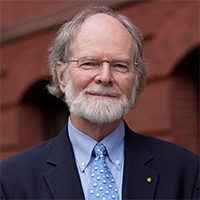
James J. McCarthy is Alexander Agassiz Professor of Biological Oceanography and from 1982 until 2002 he was the Director of Harvard University’s Museum of Comparative Zoology (MCZ). He holds faculty appointments in the Department of Organismic and Evolutionary Biology (OEB) and the Department of Earth and Planetary Sciences (EPS). He was one of the architects of Harvard’s undergraduate degree program in Environmental Science and Public Policy (ESPP), and he served as Head Tutor in this field of study for a dozen years. He is also past Master of Harvard’s Pforzheimer House. McCarthy received his undergraduate degree in biology from Gonzaga University, and his Ph.D. from Scripps Institution of Oceanography. His research interests relate to the regulation of plankton productivity in the sea, and in recent years have focused on regions that are strongly affected by seasonal and inter-annual variation in climate. He is an author of many scientific papers, and he currently teaches courses on biological oceanography and biogeochemical cycles, marine ecosystems, and global change and human health. McCarthy has served and serves on national and international planning committees, advisory panels, and commissions relating to oceanography, polar science, and the study of climate and global change for federal agencies, intergovernmental bodies and international organizations. From 1986 to 1993, McCarthy served as the first chair of the international committee that establishes research priorities and oversees implementation of the International Geosphere – Biosphere Program (IGBP). From 1986 to 1989 he served as the founding editor for the American Geophysical Union’s Global Biogeochemical Cycles. For the past two decades McCarthy has worked as an author, reviewer, and as a co-chair with the Nobel Peace Prize winning Intergovernmental Panel on Climate Change (IPCC). For the Third IPCC Assessment, he headed Working Group II, which had responsibilities for assessing impacts of and vulnerabilities to global climate change. He was also one of the lead authors on the Arctic Climate Impact Assessment, and a Vice-Chair of the 2007 Northeast Climate Impacts Assessment. McCarthy has been elected a Fellow of the American Association for the Advancement of Science (AAAS), a Fellow of the American Academy of Arts and Sciences, and a Foreign Member of the Royal Swedish Academy of Sciences. He is the recipient of the New England Aquarium’s David B. Stone award for distinguished service to the environment and the community. He is past president and chair of the Board of Directors of the AAAS, our nation’s largest scientific association. Currently, he is chair of the Board of Directors for the Union of Concerned Scientists.
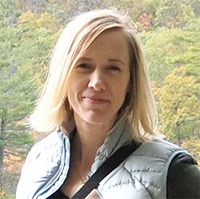
Elsie M. Sunderland is Associate Professor of Environmental Science and Engineering at the School of Engineering and Applied Sciences and in the Department of Environmental Health in the Harvard School of Public Health. She is a Faculty Associate in the Harvard University Center for the Environment and the Harvard Center for Risk Analysis. Research in the Sunderland Lab focuses on how biogeochemical processes affect the fate, transport and food web bioaccumulation of trace metals and organic chemicals. Her group develops and applies models at a variety of scales ranging from ecosystems and ocean basins (e.g., the Gulf of Maine, the North Pacific and Arctic Oceans) to global applications to characterize how changes in climate and emissions affect human and ecological health, and the potential impacts of regulatory activities. Her group also makes key measurements of chemical concentrations and reaction rates in environmental samples (natural waters, sediments, and aquatic biota) and humans (hair, blood) to parameterize and evaluate environmental models. Ongoing research is elucidating the biogeochemical cycling of compounds with contrasting physical and chemical properties that can be used to obtain insights into the varying exposure pathways and environmental lifetimes for industrial chemicals. The innovation in this work is to quantitatively analyze the entire exposure pathway for these compounds to identify their properties in air and water (e.g., stability in the atmosphere, photodegradation in water, environmental partitioning behavior) that enhance chemical persistence and ultimate accumulation in biota.
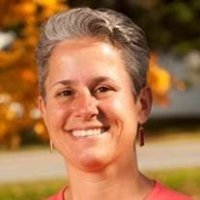
Julie Wormser is the Executive Director of The Boston Harbor Association, a non-profit organization focused on economic development, public access and sea level rise adaptation along Boston’s waterfront. Prior to joining TBHA, she spent fifteen years as a senior regional strategist with Environmental Defense Fund, Appalachian Mountain and The Wilderness Society. She helped secure millions of dollars in federal funding for forestlands and marine fisheries in New England. She was the lead author of Preparing for the Rising Tide, a well-received primer on climate change adaptation released by TBHA in February 2013. She received her BA in biology from Swarthmore College and her MPA from Harvard’s Kennedy School of Government.
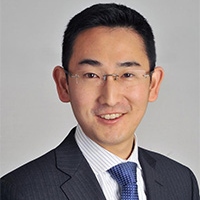
Albert Cho ’02 is Xylem’s Vice President for Strategy and Business Development. He leads corporate and business strategy, market intelligence, and business development activities across the global ~$4 billion enterprise. Before Xylem, Cho worked as Senior Advisor to the Deputy Secretary at the State Department, where he was a White House Fellow and served on Secretary Clinton’s Policy Planning Staff. Previously, he was an executive at Cisco Systems and worked at McKinsey & Company, where he helped found the Sustainability and Resources Practice and advised clients in the industrial, high tech and financial sectors. He served at the United Nations with Undersecretary General Jeffrey Sachs on a global plan for achieving the Millennium Development Goals. Albert is a Rhodes Scholar, a Truman Scholar, and a term member of the Council on Foreign Relations. He received an M.Sc in development economics and an M.B.A. with distinction from Oxford, and graduated summa cum laude and Phi Beta Kappa from Harvard College.
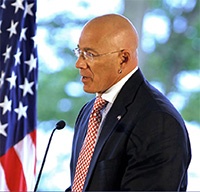
Bruce Oreck was sworn in as U.S. Ambassador to Finland on August 12, 2009. Ambassador Oreck has a diverse and encompassing background. Born and raised in New York City, Mr. Oreck also lived in New Orleans, Louisiana for many years and prior to moving to Helsinki, was a long time resident of Boulder, Colorado. Ambassador Oreck has had a lifelong passion for nature and the wilderness. An avid hiker from his youth, Mr. Oreck has camped all over America, throughout Europe and much of East Africa. Ambassador Oreck obtained his Bachelor of Arts from The Johns Hopkins University, his Juris Doctorate from Louisiana State University and his Masters of Law (Taxation) from New York University. Mr. Oreck practiced law for over 25 years representing many of the largest companies in the United States. He is the author of several books on taxation and has had a successful career as a speaker and lecturer on topics ranging from taxation to the process of creative thinking. In addition to his private legal practice, Ambassador Oreck served as General Counsel and Executive Vice President for his privately held family business, the Oreck Corporation, until the sale of that business in 2003. In his capacity as a real estate developer, Ambassador Oreck worked for many years restoring and redeveloping historic properties. This work caused him and his wife to become more and more engaged in “green” building and ultimately focused on climate change and renewable/alternative energy. In 2003, Ambassador and Mrs. Oreck founded the Zero Carbon Initiative which is committed to implementing both experimental and off-the-shelf technologies in the built environment, not just to reduce but to offset greenhouse gas emissions.
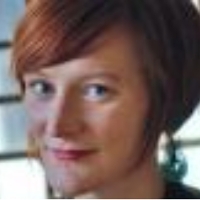
Maggie Koerth-Baker is a science journalist who specializes in understanding how science and society interact. She has been the science editor at BoingBoing.net, a science columnist for The New York Times Magazine, and is the author of Before the Lights Go Out, a book about the history and future of the American electric grid. Her work will appear in the upcoming Best American Science and Nature Writing 2014 anthology and previously appeared in the 2012 edition of The Best Science Writing Online. Maggie is interested in the sociotechnical systems that underlie everyday life and is currently investigating how human experimentation shaped what medicine is and what it will be in the future.
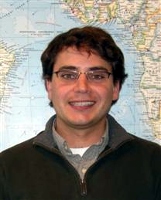
Dave Favazza is an engineering and international development professional with expertise in the planning, design, implementation, management, and sustainability of municipal and decentralized drinking water and sanitation systems. Originally hailing from Gloucester, Massachusetts, David is an Associate with Tetra Tech in their Framingham office. He currently serves as Project Manager for the Liberia Municipal Water Project (LWMP), funded by the United States Agency for International Development (USAID). He is a U.S.-registered Professional Engineer (PE) and has served as lead engineer or technical consultant on dozens of projects for domestic and international clients, including water and wastewater feasibility studies, institutional and policy analyses, master plans, and detailed facilities design and implementation. His technical experience includes water utility management, water and wastewater tariff pricing, water sector policy and institutional arrangements, resource protection, and geographic information system (GIS)-based planning and analysis. David’s program design and implementation work has included field travel to more than ten countries in sub-Saharan Africa, Eastern Europe, and the Middle East. He holds a bachelor’s degree in Environmental Engineering from Northwestern University and master’s degrees in Water Resources Engineering and Public Affairs from the University of Texas at Austin.
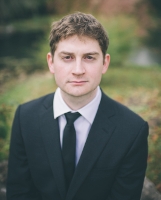
Travis Watters is a civil engineer working for the international development group of Tetra Tech, Inc., with a focus on water resources and systems. As an employee of Tetra Tech, Inc., he has worked primarily on projects funded by the Department of State, the Millennium Challenge Corporation, or USAID, such as: the Sardar Girls’ High School and Ghazi Boys’ High School in Afghanistan; the Secondary National Roads Development Program (SNRDP) in the Philippines; and Sanitation Master Planning for the city of Lusaka, Zambia. He is a U.S.-registered Professional Engineer (PE) and a member of the Boston Professional Chapter of Engineers Without Borders. Since 2011, he has been engaged in USAID’s Liberia Municipal Water Project, the goal of which is to provide more than 90% of the populations in Robertsport, Sanniquellie, and Voinjama with access to an improved water source in a manner that is financially and technically sustainable. He received a Bachelor of Science in Civil Engineering from the University of Kentucky in 2009 and a Master of Engineering in Civil and Environmental Engineering from MIT in 2010, where his thesis work involved the design and construction of a ceramic water filter manufacturing facility in Tamale, Ghana, as part of the non-profit organization Pure Home Water.
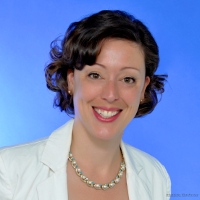
Marianne Bonnard is Director of Public Affairs at the Québec Government Office in Boston. She represents the Province of Québec in New England in a variety of sectors such as energy, environment and climate change, transportation, cultural, academic and francophone affairs, and on innovation and trade matters. Marianne was posted to Boston in January 2013, after serving 3 years as an adviser on Nordic and Arctic Affairs and the international action of non-sovereign entities at the International Relations Department of the Québec Government, in Québec City. She previously served as an expert adviser on Canadian and comparative federalism for the Québec Government from 2004 to 2010. She holds a B.A. Degree from the Strasbourg Institute of Political Sciences (France) and a Master in European Studies jointly delivered by the FU, TU and HU Berlin (Germany).
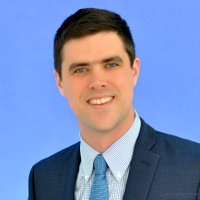 Philip Martin Duguay is a Public and Cultural Affairs Attaché with the Québec Government Office in Boston. His work focuses on energy, environmental, transportation and public security matters. He also works to create cultural exchange opportunities between Québec and New England. Raised in Connecticut, Philip was based in Canada for the last 13 years, where he studied and worked on energy policy and international development issues. He has a B.A. from Dalhousie University in Halifax, Nova Scotia, and a joint law degree (B.C.L.-LL.B.) from the McGill University, Faculty of Law in Montreal, Québec.
Philip Martin Duguay is a Public and Cultural Affairs Attaché with the Québec Government Office in Boston. His work focuses on energy, environmental, transportation and public security matters. He also works to create cultural exchange opportunities between Québec and New England. Raised in Connecticut, Philip was based in Canada for the last 13 years, where he studied and worked on energy policy and international development issues. He has a B.A. from Dalhousie University in Halifax, Nova Scotia, and a joint law degree (B.C.L.-LL.B.) from the McGill University, Faculty of Law in Montreal, Québec.
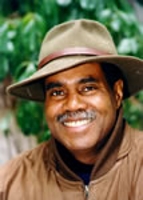
Steve Curwood was born in Roxbury, Massachusetts, and brought up as a Quaker in Yellow Springs, Ohio, where his mother, Sarah Thomas Curwood, was a sociology professor at Antioch College. He went to high school at Westtown School in Westtown and was an undergraduate at Harvard University, graduating in 1969. In 1970, as a writer for the Boston Phoenix, Steve broke the story that Polaroid’s instant photo system was key to apartheid pass system in South Africa. Steve moved on to the Boston Globe as an investigative reporter and columnist and shared the 1975 Pulitzer Prize for Public Service as part of the Boston Globe’s education team. His production credits in public broadcasting include reporter and host for NPR’s Weekend All Things Considered, host of NPR’s "World of Opera", producer for the PBS series The Advocates with Mike Dukakis, and creator, host and executive producer of Living on Earth, the prize-winning weekly environmental radio program heard for more than 23 years on public radio stations and distributed by Public Radio International (PRI) since 2006.
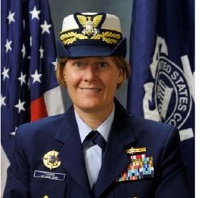
Rear Admiral Linda Fagan assumed the duties of First District Commander in May 2014. She oversees all Coast Guard missions across eight states in the Northeast including over 2,000 miles of Coastline from the U.S./Canadian border to northern New Jersey and 1300 miles offshore.In fulfilling these responsibilities, Rear Admiral Fagan commands more than 11,000 active duty, reserve, civilian and auxiliary personnel, and employs 30 cutters, 200 boats and 8 aircraft. Her previous assignment was as the Deputy Director of Operations for Headquarters United States Northern Command.
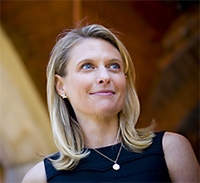
Heather Henriksen is the Director of the Harvard Office for Sustainability. In this role, she leads the effort to bring together students, faculty and staff across the University’s 12 Schools and dozens of central administrative departments to build a healthier, more efficient and sustainable campus. She oversees a robust stakeholder engagement and governance structure responsible for making progress on Harvard’s sustainability goals, including the goal to reduce greenhouse gas emissions 30% by 2016, inclusive of growth. This entails connecting student and faculty research with on-campus action, and contributing to the health and well-being of the broader campus community.
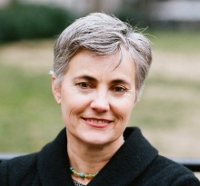
Robin Chase is founder and CEO of Buzzcar, a service that brings together car owners and drivers in a carsharing marketplace. Buzzcar.com empowers individuals to take control of their mobility, without looking to governments or big businesses for solutions. Robin is also co-founder and former CEO of Zipcar, the largest carsharing company in the world, and GoLoco, an online ridesharing community. She is on the Board of the World Resources Institute, the US Secretary of Commerce’s National Advisory Committee for Innovation & Entrepreneurship, and the US Department of Transportation’s Intelligent Transportation Systems Program Advisory Committee. She served on the World Economic Forum Future of Transportation Council, the Massachusetts Governor’s Transportation transition team, and the Boston Mayor’s Wireless Task Force. In 2009, she was included in the Time 100 Most Influential People. Robin lectures widely, has been frequently featured in the major media, and has received many awards in the areas of innovation, design, and environment. Robin graduated from Wellesley College and MIT’s Sloan School of Management, and was a Harvard University Loeb Fellow.
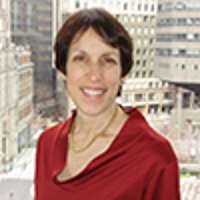
Nancy Israel is a climate change and sustainability consultant and business lawyer, who brings a business-oriented approach to managing climate change risks and opportunities. Nancy’s work on climate change and sustainability includes briefing the US Congress Bicameral Task Force on Climate Change on the public; policy recommendations in her report, “Inaction on Climate Change: The Cost to Taxpayers;” the President of R Street Institute, the Vice President of Taxpayers for Common Sense and the President of the Reinsurance Association of America lent bipartisan and insurance industry support to the policy recommendations Collaborating with multilateral development banks, underwriters, investors, and US and Canadian officials to catalyze investments in green infrastructure, renewable energy and other environmentally beneficial projects by developing the “green bonds” market; Guidance to investors, insurance companies and regulators on meaningful disclosure of climate change risks and opportunities and transparent reporting of sustainable business practices. Her background includes Managing Partner of a business law firm, International Counsel and partner at EY (Ernst & Young) and currently, sole practitioner. She is a Senior Advisor to Ceres and previously was Senior Manager in the Insurance Program at Ceres, a nonprofit whose mission is mobilizing investors and businesses for a sustainable global economy. She authored “Insurance Products that Enable the Transition to a Sustainable Future,” in addition to “Inaction on Climate Change: The Cost to Taxpayers,” both distributed by Ceres. Recent speaking engagements include the National Conference of State Legislatures, the Casualty Actuaries of New England (CANE), the Cape Cod and Islands Climate Change & Energy Conference sponsored by The Woods Hole Research Center, and the American Bar Association. Nancy is developing financial sector guidance on assessing and accounting for greenhouse gas emissions as a Technical Working Group member of the Financed Emissions Initiative of the United Nations Environment Programme Finance Initiative (UNEP FI) and the Greenhouse Gas Protocol (GHG Protocol). She is a graduate of Harvard College, where she lived in Adams House, and Harvard Law School.
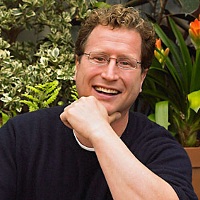
Michael Weishan is widely known as the host of the American public television series, The Victory Garden, a position he held from 2001 through 2007. He was the fourth host of the series, and retired after five seasons to resume active direction of his landscape design firm, Michael Weishan and Associates, which specializes in creating traditionally inspired landscapes for homes across the US and Canada. In addition to his work on PBS, Weishan has appeared on numerous national TV programs in the United States, including the Today Show on NBC, as well as the CBS Early Show. On radio, he hosted his own weekly NPR program, The Cultivated Gardener from 1999–2001. Weishan is also the author of three books on horticulture: The New Traditional Garden (1999); From a Victorian Garden (2004); and The Victory Garden Companion (2006). The gardening editor at Country Living for five years, Weishan is a frequent contributor to various national periodicals, including New Old House Magazine where he writes a quarterly gardening column. Weishan also maintains an active lecture schedule across the United States and Europe, with special emphasis on residential garden design, landscape history and environmental gardening. Weishan’s research in landscape design overlaps with a lifelong love of architecture, architectural design and archaeology, and his first published work (1991) was as editor and co-contributor (along with noted Harvard archaeologist George M.A. Hanfmann) of The Byzantine Shops at Sardis, volume 9 of the Sardis Archaeological Series published by the Harvard University Press. He currently serves as the Director of the the Franklin Delano Roosevelt Foundation at Adams House.
Place: Adams House LCR, 26 Plympton Street, Cambridge
Dates & Times: Adams House LCR, 26 Plympton Street, Cambridge
Wednesday January 21 4:30-6 PM
Thursday-Saturday January 22-24 10:30 to 3:30 with lunch included – as well as plenty of time for networking.
